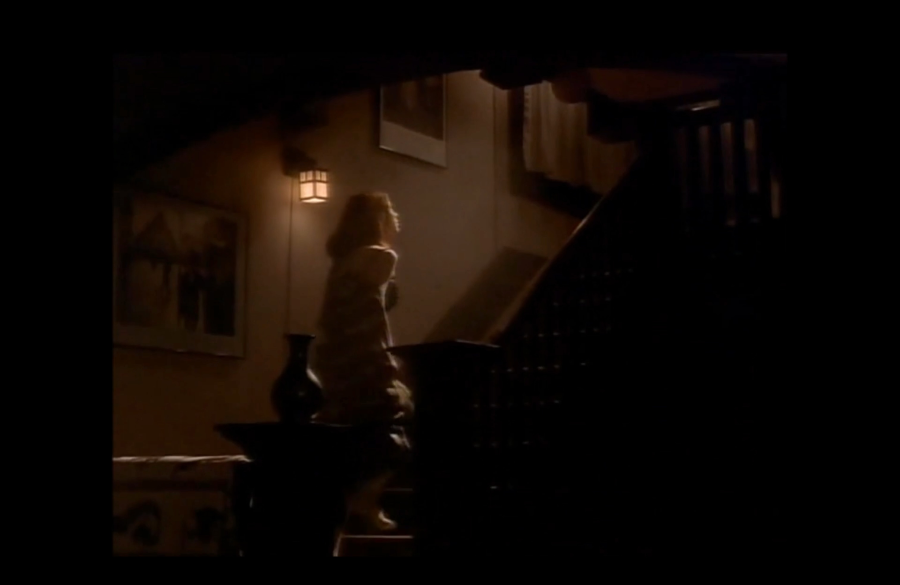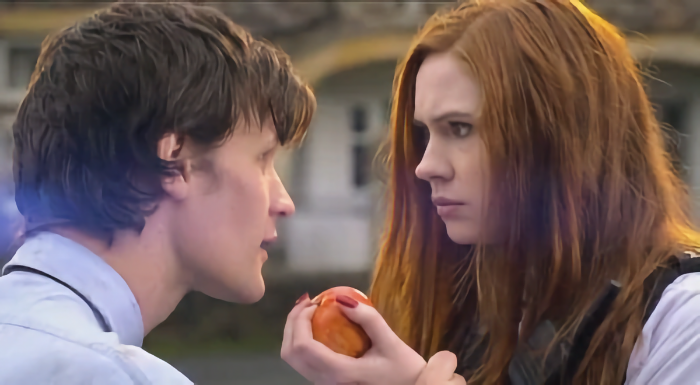Okay, I had this idea that I wanted to talk to you about something visual. Since I obsess about words and even this week spent an inordinate mass of minutes trying to decide between a plural and a singular, and even in this sentence right here was adamant that I wasn’t going to to let autocompletion tell me that I wanted to write “an inordinate amount of time”, I wanted to talk to you about visuals.
Partly because I was just in a discussion about AI video editing, where software can cut to different shots in a multicam shoot and you just know that it’s cutting on dialogue. Person A is interrupted by Person B, so the AI will cut to footage of that Person B. Fine, except dramatically we want to see just how pissed off Person A is. Editing is not mechanical coverage of a scene, it is contributing to what that scene is telling you.
And then there’s this. Every time I walk up stairs — every time — I think of Angela Chase (Claire Danes) in the 1994 pilot to My So-Called Life by Winnie Holzman. In this shot, she is a young teenager trying to sneak back into her house after being brought home from a party by police. It is a tiny moment, a few steps, but it is a quiet maelstrom and that precise visual has been in my head every single time I’ve walked up stairs in the last thirty years.
But.
While all of this is true, I think really what I’m trying to do is distract you — and me.
I did a 58keys video last week that, for reasons not worth your time, runs for 55 minutes and since it’s about a specific To Do app and I never figured out how to hide my real tasks, it has my real tasks in it. I watched it over before it went live and there’s me producing a roadshow, editing a magazine, planning projects with the Royal Television Society, running workshops. I am a strong contender for the laziest man you’ll ever meet, I’d come top if I could be bothered, but when you spot these things going by in the background of a video, I think it looks quite good. I’m not going to go so far as to say impressive, but it isn’t a task list to be embarrassed about.
Except, there are all those things, all that work, every thing that is precisely what I have wanted to do since I was in school and first realised I had to be a writer. Yet it feels wrong. Incomplete. Missing.
I read an interview this week with a writer/producer talking about a particular script and I didn’t understand it. He referred to elements of the script as being traps for actors, and I can’t see it. All I can see is that I am outside of that writing world I crave and it’s hard.
I think I need to get better at climbing stairs.

